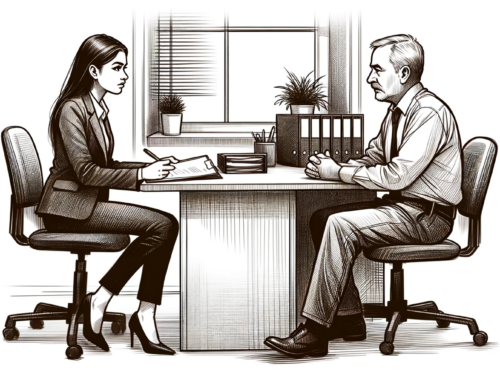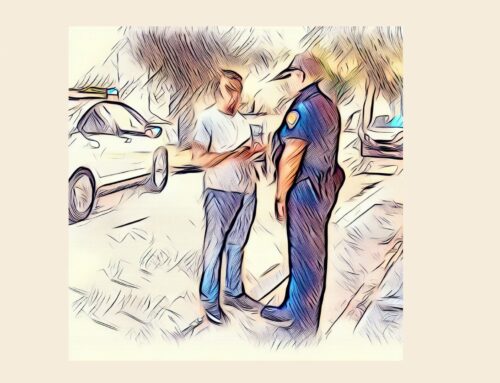Pleading Guilty or No Contest in Florida? Here’s What You Need to Know
If you’ve been charged with a crime in Florida, you may be considering pleading guilty or no contest to resolve your case. As a criminal defense lawyer in Miami, I’ve helped many clients navigate this decision. Pleading guilty or no contest is a big choice with major consequences. This post will explain, in plain English, everything you need to know about these pleas so you can make an informed decision.
I’ll cover:
- How guilty and no contest pleas work in Florida
- The key differences between them
- What rights you give up by pleading
- Critical things the judge must explain
- Your ability to appeal issues after pleading
- When you can and can’t change your plea
- The role of your criminal defense lawyer
- And more…
By the end, you’ll understand these complex legal concepts so you can decide if pleading is best for your situation.
Your Constitutional Rights When Pleading Guilty in Florida
The starting point is understanding that pleading guilty waives important constitutional rights, like:
- Your Fifth Amendment right against self-incrimination
- Your Sixth Amendment right to confront accusers and witnesses
- Your Sixth Amendment right to a jury trial
You give up these rights because a guilty plea itself is an admission of guilt. It’s saying “I did it” to the charges.
Once you plead guilty, there is no trial – you go directly to sentencing. The judge can impose judgment solely based on your plea.
So by admitting guilt, you give up the ability to require the prosecution to prove your guilt. This is why understanding your rights is critical before pleading guilty.
Requirements for a Valid Guilty Plea in Florida
Given the rights at stake, there are strict requirements to ensure your guilty plea is valid:
Voluntary Plea – You must plead guilty of your own free will, without threats, force, or promises apart from the plea deal itself. This ensures you aren’t coerced.
Knowing Plea – You must understand the charges against you (“the nature of the charges”), the rights you are waiving, and the consequences of pleading guilty.
Factual Basis – The judge must establish an adequate factual basis that you actually committed the crimes, usually through questioning you.
These requirements protect you by ensuring your plea is informed and not improperly forced. The judge will conduct a “plea colloquy” with you in court to verify your plea meets the requirements.
Things the Judge Must Explain Before You Plead Guilty
In the plea colloquy, the judge will:
- Review the charges against you and the minimum and maximum penalties
- Confirm you understand the rights you are waiving
- Explain that you waive any defenses by pleading guilty
- Advise you that your plea waives your right to appeal, except for the legality of the sentence
- Tell you that by pleading guilty there will be no trial
- Warn you that your answers in court can be used against you for perjury
The judge will also review any plea deal so you fully understand it before pleading guilty.
Don’t hesitate to speak up if you don’t understand something during this process. It’s critical that you grasp everything before admitting guilt.
Issues You Can and Can’t Appeal After Pleading Guilty
Generally, pleading guilty waives your ability to appeal any issues that arose before your plea. For example, you can’t appeal:
- The denial of motions to dismiss the charges
- The denial of motions to suppress evidence
- Speedy trial claims
However, you retain the right to appeal:
- Whether your plea was voluntary
- The legality of your sentence
- Certain fundamental constitutional issues like double jeopardy
You also can’t challenge the factual basis later if you admit guilt and waive any defenses during the plea colloquy.
So while a guilty plea ends most litigation, you maintain limited appeal rights on core issues after pleading guilty.
Your Right to Counsel When Pleading Guilty
Like during trial, you have the right to an attorney when pleading guilty. For minor misdemeanors with no possible jail time, you can waive counsel.
Otherwise, the court must advise you of your right to counsel. If you can’t afford an attorney, the court will appoint a public defender at no cost.
Your lawyer will help negotiate any plea deals, analyze the pros/cons of pleading guilty, and ensure the process protects your rights. Don’t plead guilty without consulting counsel.
Withdrawing a Guilty Plea in Florida
Generally, you can withdraw your guilty plea at any time before the judge formally accepts it in court. This allows you to change your mind.
Once accepted, you must show “good cause” to withdraw the plea. For example, you could withdraw an involuntary plea caused by your lawyer’s misadvice.
But absence a valid legal reason like this, it is very hard to withdraw a guilty plea after the court accepts it. Instead, you will be stuck with the consequences.
So if you have any doubts, it’s best to withdraw a guilty plea early before formal acceptance, rather than later.
Why People Plead No Contest Instead of Guilty
Pleading “no contest” allows you to resolve your case without admitting guilt, unlike pleading guilty.
While the direct results are similar (no trial and criminal penalties), there are some advantages:
- It cannot be used as evidence of liability in related civil cases.
- You can appeal certain legal issues, like the denial of a motion to suppress.
- It avoids directly admitting responsibility, which some defendants prefer.
With a no contest plea, you don’t dispute the charges against you but also don’t admit you committed the alleged acts.
Requirements for No Contest Pleas
The requirements for a valid no contest plea are similar to those for a guilty plea:
- It must be entered knowingly, voluntarily, and intelligently.
- The judge will conduct a “plea colloquy” to ensure you understand your rights and the consequences.
- There must be an adequate factual basis for the charges, usually established through questioning you.
The main difference is you don’t expressly admit guilt when pleading no contest.
Appealing Legal Issues After Pleading No Contest
A major reason people plead no contest rather than guilty is to preserve issues for appeal, like:
- The denial of a motion to suppress evidence
- Constitutional challenges to the statute you’re charged under
But, there are strict requirements to appeal legal issues after a no contest plea:
- You must expressly reserve the right to appeal a specific issue.
- The issue must be “dispositive” – meaning the case would end regardless of who wins on appeal.
- The judge must agree the issue is dispositive after the prosecution weighs in.
Common dispositive issues include motions to suppress drugs or a confession that is critical to proving the charges against you.
However, there are no guarantees – the appellate court can later decide the issue actually wasn’t dispositive, leaving you no recourse.
Should I Plead Guilty or No Contest?
There is no one-size-fits-all answer to this very personal decision. The risks and benefits depend on the facts of your case.
It’s critical to discuss your options thoroughly with a skilled Miami criminal defense lawyer before pleading guilty or no contest.
An experienced attorney will help you make an informed decision that protects your rights and best interests.
I know this is a lot of information! But I hope this overview better explains the plea process so you can determine if it makes sense for your situation.
If you have any other questions, don’t hesitate to reach out to discuss your case. I’m here to help you through this difficult process and achieve the best possible outcome.
CALL US for a FREE CONFIDENTIAL CONSULTATION at (305) 538-4545, or take a moment to fill out our secure intake form.* The additional information you provide will greatly assist us in responding to your inquiry.
*Due to the large number of people who contact our law office requesting our assistance, it is strongly suggested that you take the time to provide us with specific details regarding your case by filling out our confidential and secure intake form. The additional details you provide will greatly assist us in responding to your inquiry promptly and appropriately.
ALWAYS INVESTIGATE A CRIMINAL DEFENSE ATTORNEY’S QUALIFICATIONS AND EXPERIENCE BEFORE MAKING A DECISION ON HIRING A LAWYER FOR YOUR CRIMINAL CASE IN MIAMI-DADE COUNTY









